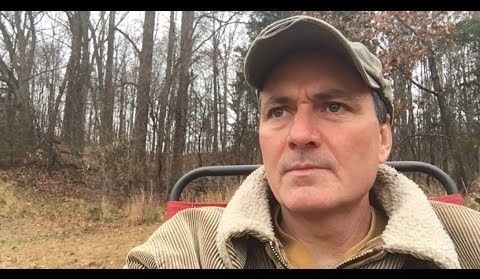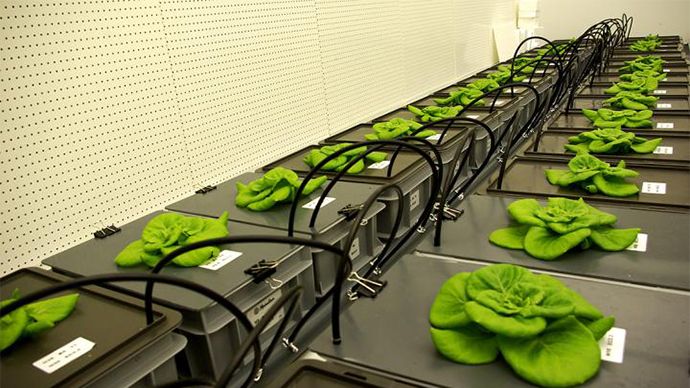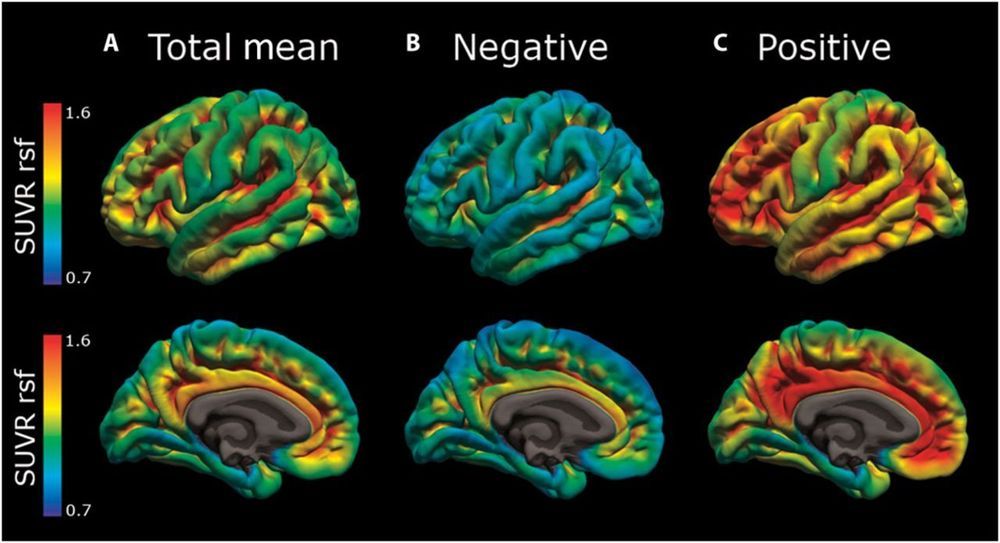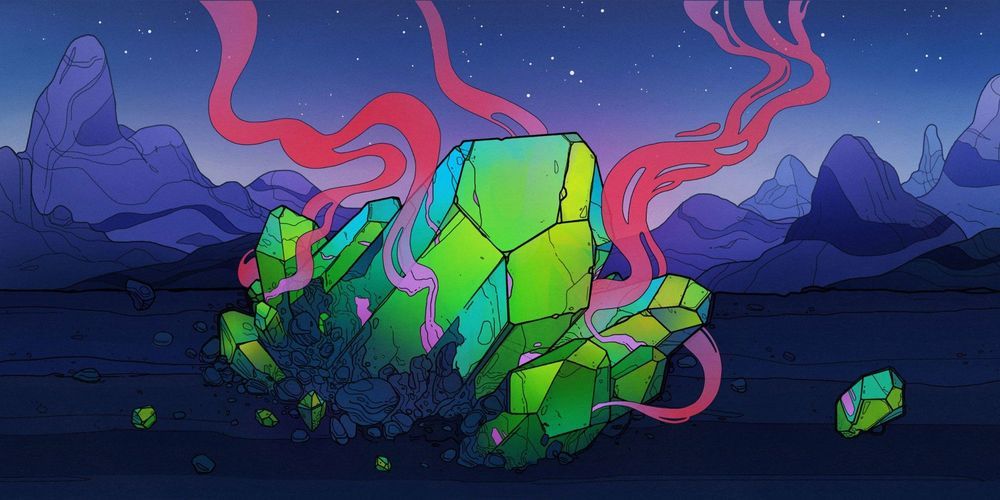Page 9157
Jan 13, 2019
Takotsubo cardiomyopathy (broken-heart syndrome)
Posted by Nicholi Avery in category: futurism
Takotsubo cardiomyopathy, also called broken-heart syndrome, is a weakening of the left ventricle that is usually the result of severe stress. Its symptoms resemble those of a heart attack, and treatment is usually the same as that for heart failure,…
Jan 13, 2019
Cosmonauts Could Be Growing More Veggies in Space
Posted by Genevieve Klien in categories: food, space
Watch out, Earth gardens: Space is set to become the next destination for growing fresh vegetables.
Following the successful cultivation of lettuce at the International Space Station (ISS) in 2015, beans could be the next legume to leave our planet in 2021, said a Norwegian University of Science and Technology NTNU) press release. Other salad essentials could also be cultivated in space, and they would provide cosmonauts and other intergalactic travelers with the nutrition they need to live on other planets.
“The dream of every astronaut is to be able to eat fresh food – like strawberries, cherry tomatoes or anything that’s really flavorful. Someday that will certainly be possible,” said Silje Wolff, a plant physiologist at the Centre for Interdisciplinary Research in Space (CIRiS) at NTNU, in the press release. “We envision a greenhouse with several varieties of vegetables.”
Continue reading “Cosmonauts Could Be Growing More Veggies in Space” »
Jan 13, 2019
Reduced non–rapid eye movement sleep is associated with tau pathology in early Alzheimer’s disease
Posted by Genevieve Klien in categories: biotech/medical, life extension, neuroscience
In patients with Alzheimer’s disease (AD), amyloid-β (Aβ) plaques and tau protein tangles accumulate in the brain long before the appearance of clinical symptoms. Early intervention is critical for slowing neurodegeneration and disease progression. Therefore, reliable markers of early AD are needed. Lucey et al. analyzed sleep patterns in aging cognitively normal subjects and showed that non–rapid eye movement (NREM) sleep negatively correlated with tau pathology and Aβ deposition in several brain areas. The results show that alterations in NREM sleep may be an early indicator of AD pathology and suggest that noninvasive sleep analysis might be useful for monitoring patients at risk for developing AD.
In Alzheimer’s disease (AD), deposition of insoluble amyloid-β (Aβ) is followed by intracellular aggregation of tau in the neocortex and subsequent neuronal cell loss, synaptic loss, brain atrophy, and cognitive impairment. By the time even the earliest clinical symptoms are detectable, Aβ accumulation is close to reaching its peak and neocortical tau pathology is frequently already present. The period in which AD pathology is accumulating in the absence of cognitive symptoms represents a clinically relevant time window for therapeutic intervention. Sleep is increasingly recognized as a potential marker for AD pathology and future risk of cognitive impairment. Previous studies in animal models and humans have associated decreased non–rapid eye movement (NREM) sleep slow wave activity (SWA) with Aβ deposition. In this study, we analyzed cognitive performance, brain imaging, and cerebrospinal fluid (CSF) AD biomarkers in participants enrolled in longitudinal studies of aging.
Jan 13, 2019
Fujifilm plans $20M U.S. facility for burgeoning interest in stem cell treatments
Posted by Genevieve Klien in categories: bioengineering, biotech/medical, genetics
A host of companies are developing regenerative treatments that lean on stem cells. Seeing an opportunity, Japan’s Fujifilm will build a U.S. stem cell manufacturing facility not only for its own efforts but also as a CDMO.
The company said today that its Fujifilm Cellular Dynamics Inc. (FDCI) subsidiary will invest about $21 million to build a facility in Madison, Wisconsin, to “industrialize” induced pluripotent stem cell technologies for its pipeline of regenerative drugs and to manufacture iPS cells for others. It expects the facility to be ready by March 2020.
“To meet the growing demand for FCDI’s iPS cell platform, the state-of-the-art production facility will have a flexible cell culturing design to serve production requirements of both industrial quantities of cells, and small, diverse batches,” Seimi Satake, FCDI CEO, said in a statement. “By combining Fujifilm’s experience gleaned from the intricate process of manufacturing photographic film along with FCDI’s knowledge of cell reprogramming, genetic engineering and cell differentiation, the facility is poised to address the complex manufacturing processes of cell therapies.”
Jan 13, 2019
Science Confirms the Health Benefits of Owning a Pet
Posted by Genevieve Klien in categories: health, science
Jan 13, 2019
Dark Matter Hunters Are Looking Inside Rocks for New Clues
Posted by Genevieve Klien in categories: cosmology, physics
Dark matter may occasionally interact with minerals in the earth, leaving traces that physicists hope to decipher.
Jan 13, 2019
Nissan Reveals Invisible Tech for a Visible Future at CES
Posted by B.J. Murphy in categories: augmented reality, robotics/AI, transportation
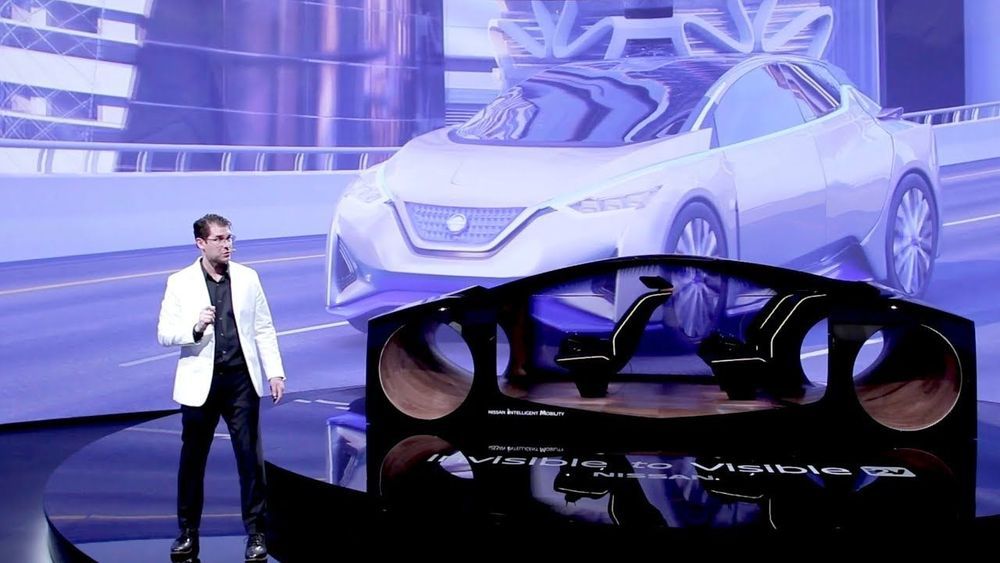
The future is just over the horizon and we’re accelerating towards it. And while the famous Dr. Emmett Brown from Back to the Future once said, “Where we’re going, we don’t need roads,” at this year’s Consumer Electronics Show (CES), Nissan revealed not only the future of road-based transportation but equally your future whip.
Driving in the future will not only be autonomous, but will also seamlessly integrate the virtual world into your physical domain using mixed reality, creating an all-around intelligent, connected, transportation ecosystem.
Continue reading “Nissan Reveals Invisible Tech for a Visible Future at CES” »

Dr. Ian Hale., my friend and occasional collaborator, is a renowned authority on autism and Asperger’s. He has spent a lifetime furthering our understanding of both.
Creating a research database to explore the autism spectrum and better understand neurodiversity. | Check out ‘Fund the Key to Autism’ on Indiegogo.
